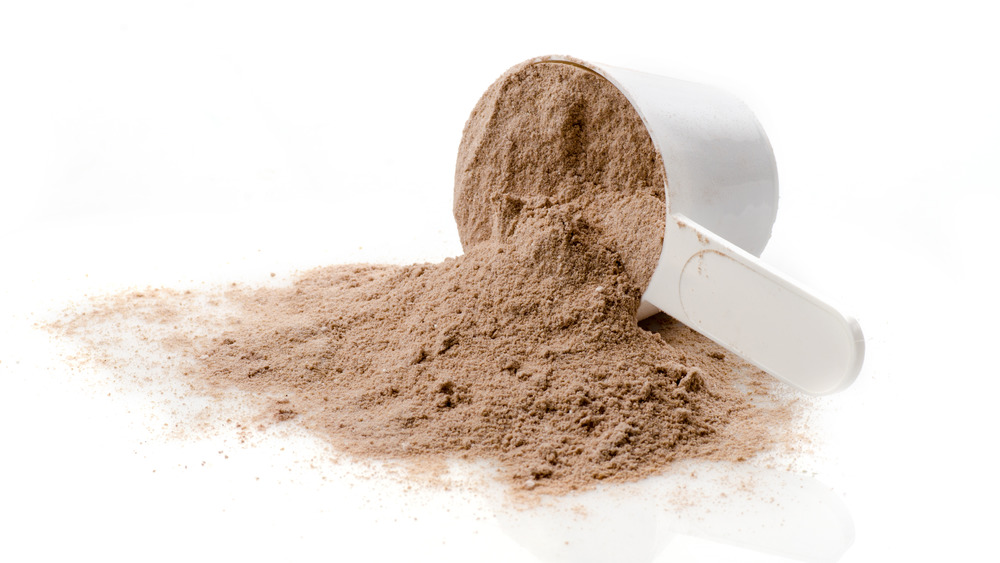What's Really In Protein Powder?
Protein powder seems like a simple, healthy addition to your diet, but not all containers of protein powder are created equal. There are many different types of protein, from whey to soy, as well as a long list of potential additives. If you're shopping for a protein powder, quality matters, and it's important to do your homework, instead of habitually scooping the least expensive canister off the shelf at the grocery store.
While whey is the most commonly used protein in powders, plant-based alternatives like soy, pea and hemp are also widely available. But rarely does a protein powder contain a single-ingredient: 'whey protein' may be the main descriptor on the label, but most protein powders contain dozens of ingredients. Typically, a powder will have thickeners, artificial or natural flavor, and sweeteners, in addition to the protein source. Therefore, you need to check the label for added calories from carbohydrates, not just from the 10 to 30 grams of protein that the powders typically contain (via Harvard Health Publishing). Your 'healthy drink' may have as much sugar as a tall glass of chocolate milk!
Protein powder may contain unlisted additives
Protein powder isn't technically a food: It's a supplement, which means it isn't regulated by the Food and Drug Administration. That means unless a powder is tested by a third-party like the NSF International Certified for Sport, which tests for contaminants as well as illegal drugs for athletes (like steroids), you can't be sure that the protein powder only contains the ingredients listed on the back of the container.
In fact, in 2018, The Clean Label Project released a study that tested 134 different protein powders available in the U.S., and found that a whopping 70 percent of them contained lead, while 55 percent contained high levels of BPA plastics. And while you might think that plant-based protein powders would be the 'cleanest,' they actually tested highest for lead and other potentially dangerous additives.
What should you do instead of slurping protein shakes? Protein is a vital nutrient, so you do still need to ensure that you're eating enough. "You'll find that there are many ways to get protein without turning to a powder," registered dietitian Kathy McManus told Harvard Health Publishing. Unless you have a compelling reason to supplement your diet with a powder, opt for whole food sources instead, like chicken, eggs, low-fat Greek yogurt, nuts, or fish. If you're struggling to stop using protein powder, a glass of skim milk (or a smoothie made with a milk base) is a great way to add eight grams of protein in a more natural way (via Healthline).


